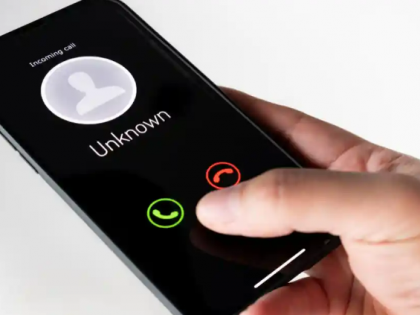AI Voice Cloning Scams: Parents Tricked by Synthetic Calls from Alleged Kidnappers
By Lokmat English Desk | Published: March 18, 2024 08:57 AM2024-03-18T08:57:15+5:302024-03-18T08:57:47+5:30
Sarita Khanna, a middle-aged wife of a businessman residing in Khargone, Madhya Pradesh, received a distressing phone call from ...

AI Voice Cloning Scams: Parents Tricked by Synthetic Calls from Alleged Kidnappers
Sarita Khanna, a middle-aged wife of a businessman residing in Khargone, Madhya Pradesh, received a distressing phone call from an unfamiliar number. The caller informed her that her 19-year-old daughter, Surbhi, who is studying in an Indore college, had been abducted. In a state of panic, Sarita Khanna immediately sprang into action, as any mother would, to seek help.
In a stern and menacing tone, the caller conveyed, "Your daughter is with us. Do as you are told, otherwise you won’t see her again." Amidst the conversation, Sarita Khanna could discern the sound of a distressed girl sobbing in the background. Immediately after the caller concluded, the desperate cries of Surbhi calling out for her mother, "mumma," became audible, only to be abruptly cut off as the phone seemingly was taken away from her. The perpetrator demanded a ransom of Rs 3 lakh for Surbhi's release.
In a state of distress, Sarita attempted to contact her daughter's number, only to find it switched off. Frantically, she reached out to her husband, but before he could make his way back home, Sarita had already transferred Rs 50,000 online as instructed by the scammer. An hour later, the father received a call from Surbhi herself, who informed him that she was safely in her hostel, asleep, and had intentionally turned off her phone. It was then realized that they had fallen victim to a new scam leveraging AI-powered voice cloning software, as confirmed by Sarita when she later informed the Indore police: "It was Surbhi's voice."
According to a report of TOI, I could hear her crying and sobbing. I thought they would do something to her. There is a new scam in town even more sophisticated than fake FedEx packages, job offers or money for liking videos. It uses artificial intelligence-powered voice cloning software to recreate the voice of your loved one.
The method by which scammers obtain voice samples is a critical question. A study conducted by software security company McAfee sheds light on this aspect. According to their findings, merely three seconds of audio data are adequate to generate an 85% match to the original voice using AI-powered voice cloning software. The researchers surveyed individuals across seven countries, India included, and discovered that over half (53%) of all adults share their voice on social media platforms at least once a week. Furthermore, the study revealed that approximately 77% of victims of AI voice scams experienced financial losses.
Such cases are only set to grow as voice cloning software is freely available to produce deepfake audio and video, according to former IPS officer and cybercrime expert Triveni Singh. These scammers are neither coders nor computer scientists. Anyone can operate these AI tools, look up numbers and record voices from social media and reproduce them as calls. But these are synthetic imitations, which can be identified as fake if the listener pays close attention, says Singh.
Singh further notes that despite the potential to identify synthetic imitations, many individuals fall prey to these scams due to fear-induced panic. He highlights an incident from December last year involving a government official based in Lucknow, whose son is pursuing engineering studies in Bengaluru. The official received a call from an unfamiliar number, informing him that his son had been apprehended with drugs and was allegedly detained at a police station. The caller demanded Rs 1 lakh for the release of the son. Distressingly, the father heard a voice resembling his son's pleading, "papa mujhe bacha lo" (Dad, save me), further intensifying his anxiety and susceptibility to the scam.